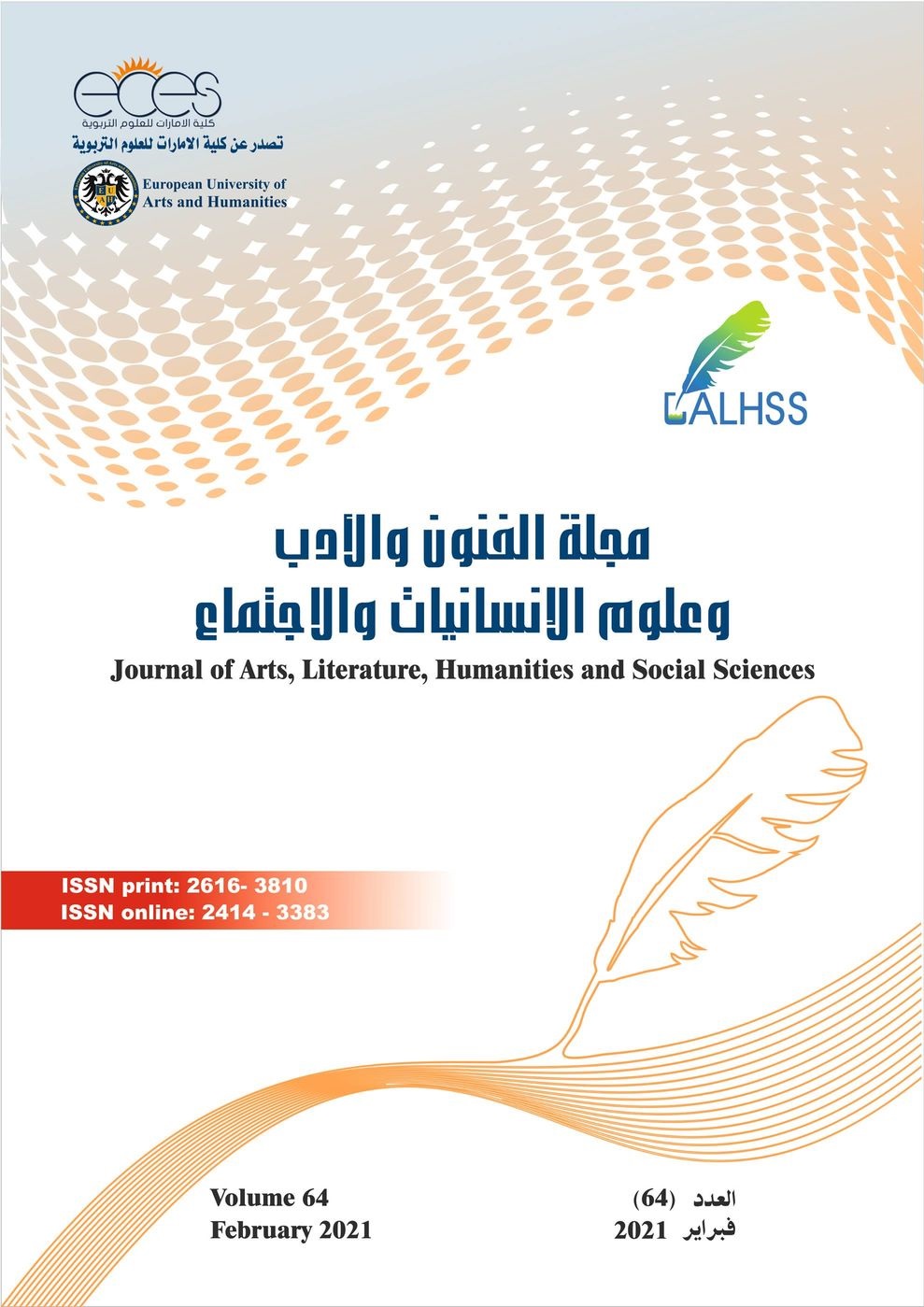The Challenges Facing Primary School Students in Jordan in Learning Math online During the Coronavirus Crisis
Abstract
This study aimed to explore the challenges facing primary school students in Jordan in learning math online during the Coronavirus crisis. Thus, a descriptive analytical approach is adopted. A questionnaire was developed. It sheds a light on four types of challenges (i.e. educational¸ and psychological challenges, assessment-related challenges and IT-related challenges). The researcher selected a purposive sample consisting from 300 6th grade students. Those students were selected from 10 primary schools in Amman, Jordan. Questionnaire forms were passed to them in an electronic manner. 287 questionnaire forms were retrieved and considered valid for analysis. The response rate is 95.66%. It was found that 61%30 of the respondents have low satisfaction with learning math online during the Coronavirus crisis. The researcher concluded that the severity of the challenges facing primary school students in Jordan in learning math online during the Coronavirus crisis is high in all the areas jointly and separately. He recommends providing teachers and students in public and private schools with access to well-known electronic libraries and databases.
References
2. https://journals.qou.edu/index.php/jropenres/article/view/427
3. Bani Yaseen, B.; and Melhem, M. (2011). The e-learning-related challenges that face teachers in the schools affiliated with Irbid Al-Ola directorate of education. The Palestinian Journal of Open Education and E-learning, 3(5), 115- 136,
4. https://journals.qou.edu/index.php/jropenres/article/view/427
5. El-Hersh, A.; Muflih, M.; and Aldhoon, M. (2010). Obstacles of the Application of E-Learning Systems as Viewed by Secondary School Teachers at Al-Kurah District. The Jordanian Journal for Educational Sciences. 6(1), 27-40
6. Soman, A.; and Hamzeh, M. (2011). The Obstacles of Utilizion EDUWAVE from the Perspective of Public Schools Teachers in Amman and their Attitudes towards It. Dirasat: Educational Studies. 38(3), 917-930
7. Adedoyin, O. and Soykan, E. (2020). Covid-19 pandemic and online learning: the challenges and opportunities. Interactive Learning Environments. Special issue. https://doi.org/10.1080/10494820.2020.1813180
8. Al-Amery, A. (2020). Attitudes of the students at the institutes of fine arts in Iraq towards implementing active learning strategies in Arabic language courses and the associated challenges. Journal of Education and Practice, 11(13), 73-81
9. Andersson, A. (2008). Seven major challenges for e-learning in developing countries : Case study eBIT, Sri Lanka. International Journal of Education and Development Using ICT, 4(3). Retrieved from http://urn.kb.se/resolve?urn=urn:nbn:se:oru:diva-5908
10. Attri, A. (2012). Distance education: problems and solutions. International Journal of Behavioral Social and Movement Sciences, 1(4).
11. Dahadhah, M. and Al-Hamoori, R. (2020). Attitudes of Students in Jordanian Public Secondary Schools towards Online Exams during the Coronavirus Crisis and the Impact of Such Exams on Motivation. Journal of Education and Practice. 27(11)
12. Graham, D. (2019). Benefits of Online Teaching for Face-to-Face Teaching at Historically Black Colleges and Universities. Online Learning Journal. 23(1).144-163
13. Gillett-Swan, J. (2017). The Challenges of Online Learning Supporting and Engaging the Isolated Learner. Journal of Learning Design. 1(10). 20-30
14. Kim, W.; and Shih, T. (2003). Distance education: The status and challenges. Journal of Object Technology, 2(6). 35-43
15. Luaran, J.; Samsuri, N.; Nadzri, F.; and Rom, F. (2013). A study on the student’s perspective on the effectiveness of using e-learning. The proceedings of Taylor's 6th Teaching and Learning Conference, Taylor's University, Subang Jaya, Selangor, Malaysia 23 November, 2013
16. Nguyen, T. (2015). The Effectiveness of Online Learning: Beyond No Significant Difference and Future Horizons. MERLOT Journal of Online Learning and Teaching. 11(2). 309-319
17. Salehi, M., & Farhang, A. (2019). On the adequacy of the experimental approach to construct validation: the case of advertising literacy. Heliyon, 5(5). Retrieved from: https://doi.org/10.1016/j.heliyon.2019.e01686
18. Sarvestani, M.; Mohammadi, M.; Afshin, J.; and Raeisy, L.(2019). Students' Experiences of E-Learning Challenges; a Phenomenological Study. Interdisciplinary Journal of Virtual Learning in Medical Sciences. 10 (3).
19. Singhal¸ T. (2020). A Review of Coronavirus Disease-2019 (COVID-19). The Indian Journal of Pediatrics 87(4): 281–286.
20. Toquero, C. (2020). Challenges and Opportunities for Higher Education amid the COVID19 Pandemic: The Philippine Context, Pedagogical Research, 5(4), https://doi.org/10.29333/pr/7947
21. UN Children's Fund (18, May, 2020). UNICEF and the COVID-19 response for education in Jordan: One month on. Retrieved from: https://reliefweb.int/report/jordan/unicef-and-covid-19-response-education-jordan-one-month
22. Wang, H. (2014). Challenges for distance education: a cultural analytic perspective on asynchronous online courses in Sweden. Published MA thesis. Lund University. Sweden



